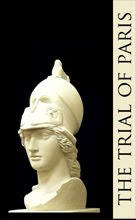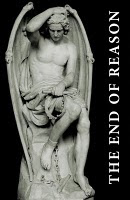It is traditional to open such works with words praising those in power. Yet those who have power have the least need for praise. And since no living king can be found who believes in God and His signs and acknowledges His transcendent power, I have no appetite to appeal to the vanity of those whose dominions are ephemeral and who, though alive, may rightly be regarded as dead.
In the place of panegyric, I offer these few words.
Surely the kinsmen of His glory are today blessed above all races, notwithstanding that He is Lord of East and West equally. But today, Persia is sunk in loathsome oppression and worthless imaginings. Though the land of my fathers is immersed in vanity and corruption, though the West is far from God, who shall say we are lost if the lantern is unlit? When will His tribe and family deliver themselves from fear, rise up from their stupor, shake off the chains of ignorance and self-satisfaction, and burn brightly for this world and for the world yet to come? When will they realize the end to which they were purposed?
Rise up, sleepers, and claim your inheritance. How long will you slink away from your Lord’s command and, like Jonah, be swallowed up for your obstinacy? Though we have neither love for ourselves nor one another, His love is sufficient and He will redeem us all.
Thursday, February 18, 2010
Monday, February 15, 2010
For the Fairest
At the wedding feast of Peleus, king of the Myrmidons, and the goddess Thetis, all the gods and goddesses were in attendance, except one. None invited Eris, the goddess of discord. She was not welcome at the lucky marriage of the mortal Peleus and his immortal bride. But Eris was offended, nursed her wounded heart, and said with malice, “Though I am unwanted, I will give these happy newlyweds a gift even their son, the noble Achilles, will treasure until he dies at the walls of Troy.” So she fashioned an apple of unalloyed gold without blemish and etched upon it the letters “For the fairest.” On the day of the wedding, Eris cast the apple in the midst of the gods and goddesses in attendance. Hermes took the apple in graceful hands and carried it to Thetis.
Thetis, who was wise, said, “This is not for me. Bring it to Zeus and he will award it to whomever he pleases.”
Hermes gave the apple to Zeus. When Hera, Zeus’ beautiful wife, and Zeus’ two daughters, Aphrodite and Athena, saw the apple, they each claimed it. Zeus, like Thetis, was also wise and said, “I am not fit to stand in judgment between my wife and my daughters. If I were to judge I would declare all three fit to receive this apple, for they are fairest each in their way. Yet even should I secretly prefer one to the others, I would, in gaining the friendship of one, only stir up the anger and enmity of two and this is not fit for a king of gods. Some other must award this prize to the fairest of these three.”
Hera said, “Then choose one who is fit.” But not wishing to offend any of the three contending goddesses, none of the immortals stepped forward.
Athena said, “Only a mortal, one who has never before angered the gods nor ever before been favored by them, may make this choice. Only such a mortal could be impartial in judgment. Yet he must be of noble birth. Only such a mortal could be worthy of judging between us.”
Hera said, “What noble child is not favored or cursed by the gods? Yet if there is one on the face of the Earth, surely my husband knows of him.”
Zeus said, “I know of one, a prince in exile, the descendent of gods, but mortal. He is Paris, the son of Priam. But will you three accept him as judge?”
Aphrodite said, “I accept since no living man will find fault with me and the prize is as good as mine whomever you name.”
Hera said, “Will you cow him with threats of your beloved Ares?”
Aphrodite said, “Unlike those clumsy in the arts of allurement and desire, I have no need of threats. I will leave those to you.”
Zeus said, “This judgment must be fair and he who judges must not be threatened, for you three have terrible power over him. If the goddess who wins does so by threat, she is by this single proof not the fairest.”
Hera and Aphrodite agreed to these terms, but Athena did not speak. At last, Zeus turned to her and said, “Dearest daughter, what do you say?”
Athena said, “I accept your choice of Paris to judge between us and won’t threaten him with my power. Yet it is he who is by judgment judged and by trial of beauty himself tried.”
Thetis, who was wise, said, “This is not for me. Bring it to Zeus and he will award it to whomever he pleases.”
Hermes gave the apple to Zeus. When Hera, Zeus’ beautiful wife, and Zeus’ two daughters, Aphrodite and Athena, saw the apple, they each claimed it. Zeus, like Thetis, was also wise and said, “I am not fit to stand in judgment between my wife and my daughters. If I were to judge I would declare all three fit to receive this apple, for they are fairest each in their way. Yet even should I secretly prefer one to the others, I would, in gaining the friendship of one, only stir up the anger and enmity of two and this is not fit for a king of gods. Some other must award this prize to the fairest of these three.”
Hera said, “Then choose one who is fit.” But not wishing to offend any of the three contending goddesses, none of the immortals stepped forward.
Athena said, “Only a mortal, one who has never before angered the gods nor ever before been favored by them, may make this choice. Only such a mortal could be impartial in judgment. Yet he must be of noble birth. Only such a mortal could be worthy of judging between us.”
Hera said, “What noble child is not favored or cursed by the gods? Yet if there is one on the face of the Earth, surely my husband knows of him.”
Zeus said, “I know of one, a prince in exile, the descendent of gods, but mortal. He is Paris, the son of Priam. But will you three accept him as judge?”
Aphrodite said, “I accept since no living man will find fault with me and the prize is as good as mine whomever you name.”
Hera said, “Will you cow him with threats of your beloved Ares?”
Aphrodite said, “Unlike those clumsy in the arts of allurement and desire, I have no need of threats. I will leave those to you.”
Zeus said, “This judgment must be fair and he who judges must not be threatened, for you three have terrible power over him. If the goddess who wins does so by threat, she is by this single proof not the fairest.”
Hera and Aphrodite agreed to these terms, but Athena did not speak. At last, Zeus turned to her and said, “Dearest daughter, what do you say?”
Athena said, “I accept your choice of Paris to judge between us and won’t threaten him with my power. Yet it is he who is by judgment judged and by trial of beauty himself tried.”
Subscribe to:
Posts (Atom)





